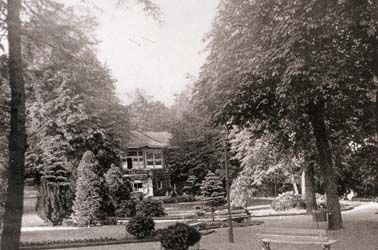Throughout his life, Kafka was dogged by thoughts about his own body’s dismal future. These fears that his body was not adequately equipped for life were substantiated, in his view, by his insomnia, headaches and feelings of weakness and exhaustion.
He sought refuge in the healing powers of Nature: fresh air, walks and excursions, country holidays and spa treatment, a vegetarian diet, tried and tested physical exercises, cold baths and sport. At the same time he abhorred official medicine and its drugs. Eventually his hypochondriacal fears assumed the form of serious illness. In the autumn of 1917, when Kafka was 34, disease broke out in his body with full force. During the following seven years, his health was to be the central concern of his life. Illness put an end to his dismal efforts at marriage and solved the dilemma of how to reconcile employment and writing by obliging him to search the world for a cure that he did not believe in. Illness, which for years he had pondered on and described in many profound and farsighted texts, was now transferred from his life to his work as an incredibly truthful component holding in together.
Onset of illness

© Archiv Klaus Wagenbach, Berlin